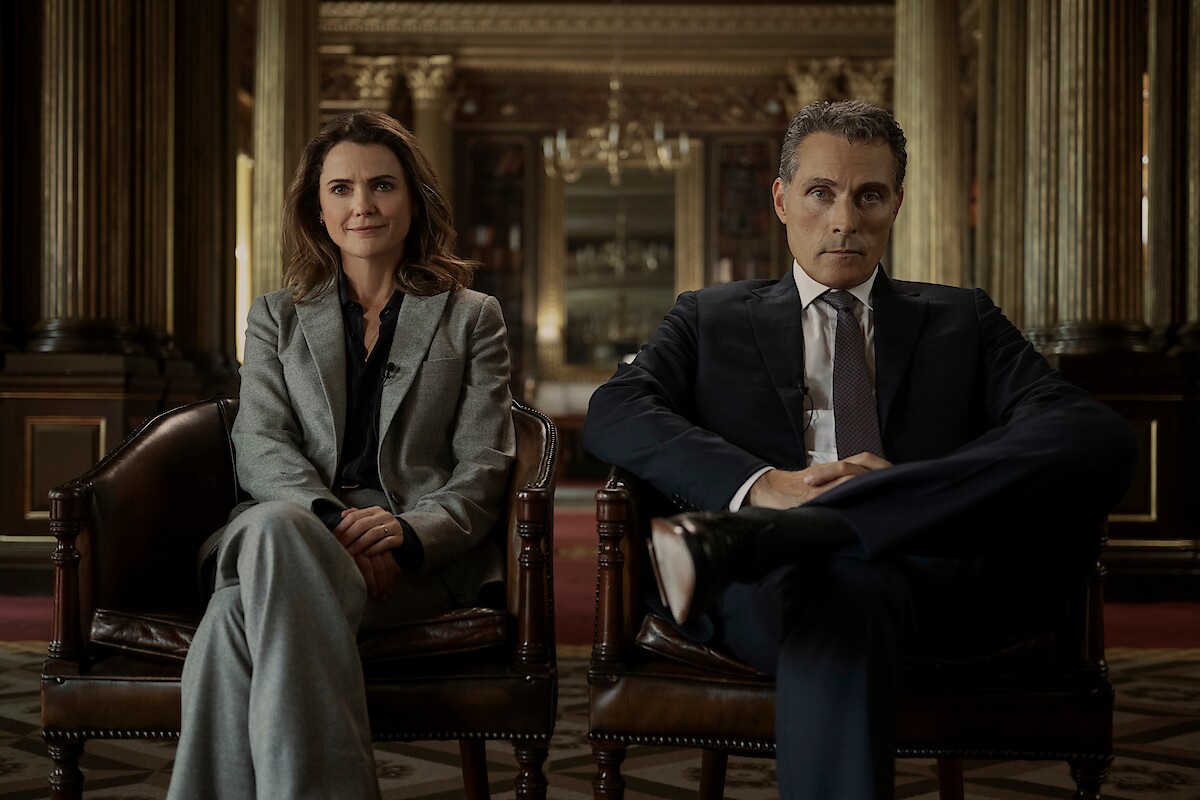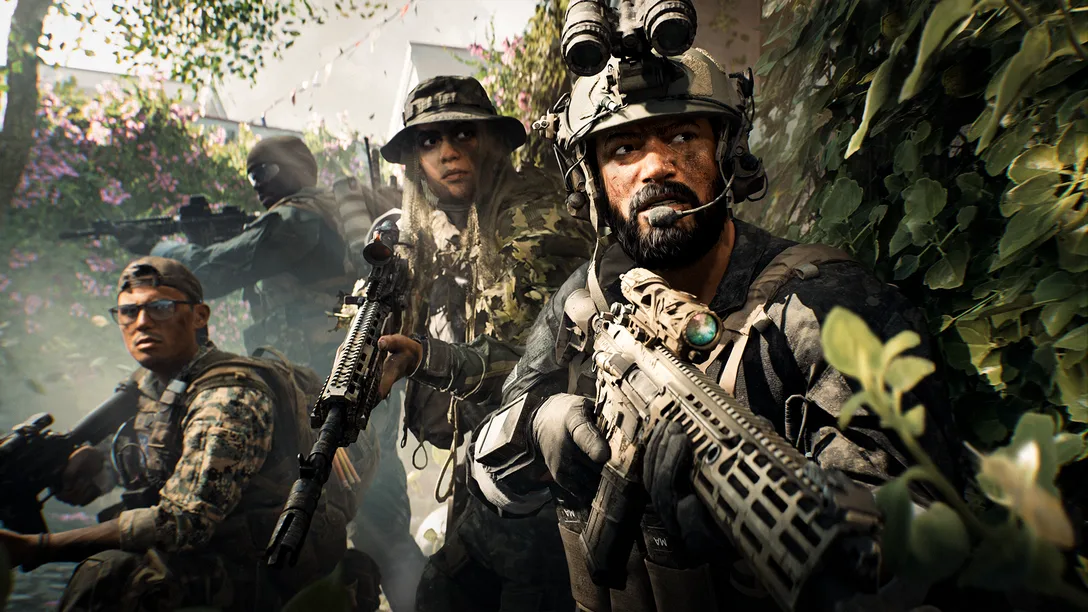TL;DR: Keri Russell shines in The Diplomat’s most thrilling, morally tangled season yet. Electric, intelligent, and uncomfortably real.
The Diplomat Season 3
There’s a specific kind of thrill I get when I watch The Diplomat—a mixture of intellectual adrenaline and emotional whiplash. It’s the same feeling I used to get watching The West Wing at 2 a.m. during college finals, half out of genuine civic curiosity and half out of the masochistic joy of pretending I could survive one day inside the Beltway. Except, The Diplomat doesn’t invite you to walk the marble corridors of idealism. It drags you through the mud of realpolitik, where every handshake hides a knife.
Season 3, now streaming on Netflix, is Keri Russell at her sharpest and most dangerous—an actress who has taken Kate Wyler from dutiful diplomat to reluctant player in an increasingly broken system. This season is electric from its opening moments and refuses to let you breathe until the credits roll. I binged all eight episodes in one sitting, the kind of marathon that leaves your eyes dry and your morals damp.
But before we get into the blood and brilliance of it all, let me confess something: I didn’t expect The Diplomat to still have this much bite in its third season. Political thrillers have a habit of collapsing under their own self-importance by now. They either turn into self-parody (House of Cards, looking at you) or start moralizing so loudly you can’t hear the story anymore. But The Diplomat? Somehow it’s found a way to stay both compulsively watchable and uncomfortably relevant.
Power in Freefall: The Story So Far
Season 3 picks up in chaos—because, of course, it does. The President of the United States is dead, a phone call away from a moral implosion involving Kate’s estranged husband, Hal Wyler. Meanwhile, Kate has confessed to Vice President Grace Penn (Allison Janney, queen of composed menace) that she knows too much—and wants her job. The show wastes zero time setting the stage: Rayburn’s death sends shockwaves through the fragile ecosystem of Washington and London, and everyone starts shifting alliances like chess pieces on fire.
This isn’t your average power vacuum. It’s a political black hole, and watching Kate navigate it feels like watching a tightrope walker above a pit of vipers—graceful, desperate, magnetic. The new President, Grace Penn, is sworn in, and suddenly the world feels smaller and more dangerous. Every decision ripples outward: a missile test, a misread briefing, a late-night call that might as well be a declaration of war.
And yet, the show’s greatest strength isn’t its geopolitics. It’s its people.
The Beauty of the Breakdown: Kate Wyler’s Balancing Act
I’ve said it before, but it bears repeating: Keri Russell is a magician. There’s something uniquely human about the way she plays Kate—this perfect cocktail of exhaustion, intellect, and defiance. She’s not a slick operator or an idealized heroine. She’s someone who wakes up every morning and decides, again, to fight an unwinnable war with her own conscience.
Season 3 puts her through the wringer. She’s juggling her role as ambassador, her increasingly complicated relationship with Grace Penn, her emotional minefield with Hal, and her political flirtation (literal and figurative) with Foreign Secretary Dennison (David Gyasi). It’s all a mess—but it’s her mess, and she owns it.
One of my favorite scenes this season is a small one: Kate, alone in her office, looking out over a rain-soaked London. No dialogue, no political machinations—just a moment of stillness. You can see every battle she’s fought reflected in that glass. For a show so driven by language, its silences hit like thunder.
Russell’s performance this season feels less like acting and more like exorcism. She brings the same intensity she once gave to The Americans, but here it’s tempered by weary pragmatism. There’s a moment late in the season when Kate admits that diplomacy isn’t about building peace—it’s about managing collapse. It’s one of those lines that feels ripped from the modern world, and Russell delivers it with a resigned grace that made me pause and just… exhale.
Allison Janney and the Power of Controlled Chaos
If Keri Russell is the soul of The Diplomat, Allison Janney is its dark mirror. Grace Penn is the kind of leader who terrifies because she believes she’s the right person for the job. Season 3 turns her from a fascinating side character into a full-blown titan of dysfunction, and Janney chews the scenery with surgical precision.
Watching her ascend to the presidency feels like watching a plane take off with one wing missing. There’s charisma, composure, even flashes of warmth—but always that undercurrent of dread. Janney plays Grace like a woman who’s read every rulebook and decided to burn them for warmth.
And then there’s Bradley Whitford as her husband, Todd Penn. I’ll admit, when I saw his name in the cast list, I worried it would be a nostalgia play—a little West Wing reunion wink. But Whitford sidesteps that completely. His Todd is quiet, perceptive, and dangerously observant. He’s the kind of character you forget about until suddenly you realize he’s been watching everything, saying nothing, and connecting dots no one else even sees.
Their marriage is a study in political intimacy—two people bound by power, slowly realizing it’s killing them both. It’s a fascinating counterpoint to Kate and Hal’s toxic-but-tender love story. Grace and Todd are what happens when ambition outlasts affection. Kate and Hal are what happens when affection refuses to die, even after trust has.
Love, War, and the Spaces In Between
The Diplomat continues to prove that its best relationships are built on chaos. Kate and Hal’s marriage remains one of the most compelling slow-motion car crashes on television. Rufus Sewell gives Hal that perfect blend of charm and toxicity—you hate him, but you can’t stop watching him. Their scenes together have this charged unpredictability, like two weather systems colliding.
Meanwhile, the simmering tension between Kate and Dennison has matured into something rich and volatile. They’ve gone from cautious allies to something deeper, messier, and more dangerous. Every scene they share feels like a negotiation between loyalty and lust. It’s a love story written in code and compromise.
What’s remarkable is that the show never lets romance overshadow the politics—it is politics. Every glance, every whisper, every half-truth exchanged between these people doubles as a diplomatic act. It’s intoxicating, and occasionally exhausting, in the best way.
The Season’s Big Themes: Power, Guilt, and National Narcissism
Season 3 sharpens The Diplomat’s critique of American exceptionalism. This time, the series stops pretending that the U.S. is a reluctant superpower. It portrays America as what it’s quietly become in the real world: a tired empire convinced it’s still the hero of the story.
The tagline—“No alliance lasts forever”—isn’t just about foreign policy. It’s about human connection, too. Kate’s alliances with Grace, with Dennison, with Hal—all of them fracture under pressure. The season’s moral compass spins wildly, forcing everyone to confront how far they’re willing to bend the truth for survival.
It’s hard not to draw parallels between the show’s world and our own. When Grace manipulates information to consolidate power, it’s impossible not to think about real leaders doing the same. When Kate wrestles with whether to expose the truth or protect stability, you can feel the writers daring us to ask what we’d do in her position.
That’s the brilliance of The Diplomat. It never sermonizes. It seduces you with style, then quietly dismantles your idealism.
Craft and Chaos: The Art of the Political Thriller
From a technical standpoint, The Diplomat Season 3 is a masterclass in tension. The writing is razor-sharp without ever lapsing into jargon. The direction uses space brilliantly—claustrophobic embassy rooms, cavernous halls of power, quiet domestic corners that somehow feel more dangerous than war rooms.
Even the music feels weaponized. That low hum beneath tense conversations, the subtle strings during Kate’s private moments—it all works like emotional sonar, guiding you through the chaos.
Visually, London remains the perfect backdrop: rainy, regal, and perpetually disappointed in humanity. There’s something poetic about watching the world unravel against a skyline that’s seen empires rise and fall.
Why It Works (and Why It Shouldn’t)
By Season 3, most political thrillers either lose their teeth or their soul. The Diplomat somehow keeps both. The secret, I think, lies in its refusal to treat intelligence as a superpower. In this universe, smart people still make catastrophic choices. Emotion still trumps logic. The system still eats its own.
Keri Russell’s Kate Wyler isn’t infallible—she’s just aware enough to know when she’s lying to herself. That awareness gives the series its heartbeat.
And maybe that’s why I find The Diplomat so addictive. It’s not escapism—it’s exposure. It holds up a mirror to our political moment and whispers, This is you, isn’t it?
Final Thoughts: The Addictive Morality of The Diplomat
By the time the season’s final episode fades out, the tagline “No alliance lasts forever” feels less like a warning and more like a prophecy. Everyone’s playing their own game, and no one wins.
Yet somehow, I couldn’t look away.
The Diplomat Season 3 is sleek, sharp, and emotionally devastating—a reminder that power doesn’t corrupt so much as it reveals. And Keri Russell? She remains the eye of this hurricane: calm, calculating, and heartbreakingly human.







